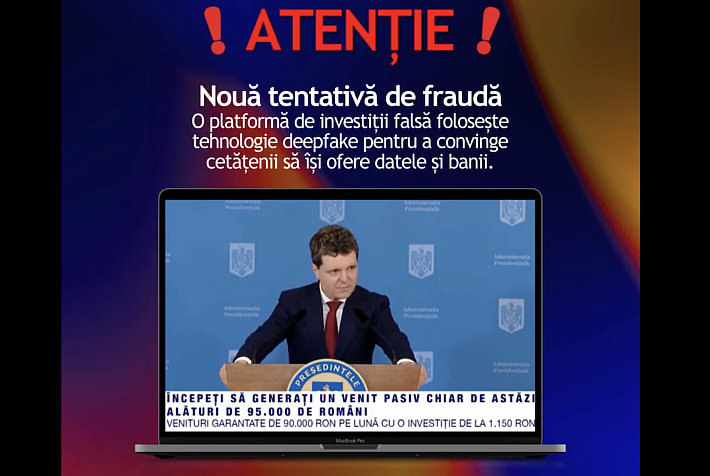(P) Tax Flash: Amendments to the Fiscal Code in Romania

(Ordinance 30/2011 regarding the amending of Law 571/2003 regarding the Fiscal Code published in the Official Gazette no. 627/2 September 2011)
The current Ordinance enters into force starting with 1 January 2012, with certain exceptions highlighted below.The main amendments refer inter-alia to the following:
I. Registration requirement
The obligation to register with the tax authorities of the contracts concluded with non-residents for the supply of services that could generate Romanian permanent establishment was also introduced for the resident individuals and Romanian permanent establishments of the non-resident legal entities as beneficiaries of such services.
II. Profits tax
Tax payers
Non-resident legal entities and non-resident individuals that carry out activities in Romania through an association with legal personality are also obliged to pay profits tax.
Trust agreements
New provisions were brought in connection with the tax treatment of the operations within trust agreements that enter into force starting 1 October 2011.
Non-resident associations with legal personality
The provisions from the Fiscal Code regarding the tax treatment of the associations without legal personality are also applicable for non-resident associations with legal personality.
Declaration and payment of profits tax
The moment starting with which taxpayers (with certain exceptions) may opt for the declaration and payment of the annual profits tax with advance payments performed on quarterly basis is postponed until 1 January 2013. Banking companies, which already apply the advance payment system, will continue to apply such system.
The option for the annual reporting and payment system of the profits tax needs to be performed by 31 January of the year for which the option is requested and has to be maintained for at least two consecutive fiscal years.
The Fiscal Code stipulates specific provisions for establishing the base for advance payments for taxpayers that have been involved in restructuring operations.
Starting 2012 taxpayers will perform payments of their profits tax liabilities for the quarters I - III. The settlement of the profit tax for that fiscal year will be made until the submission deadline of the annual profits tax return. In this respect taxpayers will not be required to pay for the last quarter a profit tax equal to the one computed and declared in quarter III.
Additionally, the annual profits tax return shall be submitted until 25 March inclusive of the following year, with certain exceptions.
The profits tax due for year 2011 will be declared and paid according to the provisions of the Fiscal Code applicable until 31 December 2011.
III. Human Capital
Tax residency
In the absence of a tax residency certificate issued by another state based on a double tax treaty, foreign citizens are liable to income tax in Romania on their worldwide income as of 1 January of the calendar year following the one they meet at least one of the following criteria:
their center of vital interests is located in Romania; or
they spend herein a period or periods that exceed in aggregate 183 days during any period of 12 consecutive months ending in the calendar year concerned.
Previously, such liability was arising for foreign individuals starting with the fourth year of meeting any of the above mentioned conditions.
Also, individuals who met the conditions above during the period 2010-2011, and 2011 respectively, will be subject to income tax on their worldwide income starting with 2012.
Romanian tax residency is provided for an entire calendar year.
Independent activities
Starting with January 2012, in case of income from independent activities for which the payer has income tax withholding obligations, the advance income tax rate of 10% will apply to gross income after deducting the mandatory social charges withheld according to the law.
Quarterly reporting and payment
Starting with salary income paid for October 2011, certain categories of salary income payers (e.g., freelancers, microenterprises whose average number of employees during the previous year did not exceed 3 employees, excluded, etc.) are liable to transfer the salary income tax, social contributions, but also to file relevant statements on a quarterly basis, by the 25th, included, of the month following the end of the quarter the liabilities are due for.
These income payers can also opt for monthly filing of relevant statements due.
Reporting obligations for income payers
For salary income earned in 2012, the annual fiscal records previously issued by the income payers of such income will be replaced by statements attesting the salary income tax calculation and withholding due for each income beneficiary. The deadline for filing this statement remains the last day of February following the year for which the statement is issued.
A similar statement is also due from other income payers who have income tax withholding obligations (e.g., in case of civil conventions). The deadline for its filing has changed from 30 June to the last day of February, as for salary income.
Annual income statements
The deadline for filing the annual tax returns due for income obtained from Romania and abroad changes from 15 May to 25 May of the year following the one the income was realized.
IV. Withholding tax
Trust agreements
New provisions are introduced regarding tax treatment of income derived under trust agreements applicable starting 1 October 2011.
Annual statement
The deadline for the annual statement regarding income obtained by non-residents subject to withholding tax (with the exception of salaries) changes from 30 June to the last day of February of the current year for the previous year.
V. VAT
Supplies of services which determine successive settlements or payments
Starting 5 September 2011, the provision according to which the settlement period in case of the services which determine successive settlements or payments cannot exceed one year was eliminated.
The deadline for submiting the recapitulative statement
Starting with the statement for August 2011, the recapitulative statement regarding the intra-community sales and acquisitions of goods and services should be submitted by the 25th day of the month following the one for which it is submitted.
Simplification measures
Starting 5 September 2011, further to amendments and clarifications brought by the Ordinance, the reverse charge mechanism is applicable to the supply of certain categories of waste provided by the law and to the supply of such waste after it is processed.
VI. Excise duties
In the field of excise duties, the main amendments were the following:
starting 5 September 2011, the persons that intend to be an authorised warehouse keeper must have a minimum share capital whose level is to be established by the Methological Norms for the application of the Fiscal Code;
starting 5 September 2011, the legal effects of the suspension, revocation or annulment decision of the fiscal warehouse authorisation are not suspended during the period when the contestation against such decision is solved by the administrative bodies;
starting 5 September 2011, the requirements to be fulfilled by the persons receiving excisable products under an excise duty suspensive regime will also include the obligation to confirm the fact that the excisable products reached their destination and the obligation to keep the received products for the purpose of checking and certifying the information in the electronic administrative document by the relevant authority;
introducing a minimum level of security in order to obtain the fiscal warehouse authorisation;
introducing the obligation to apply markings on fermented drinks, other than beer and wine.
VII. Local taxes
Income for buildings that have not been revalued
The building tax rate applicable for buildings held by legal entities is set between 10% and 20%, respectively 30% and 40% of the inventory value recorded in the company’s books for the buildings that have not been revaluated during the last 3, respectively 5 years.
Tax computation for buildings with turistic destination
For buildings with tourist destination that are not used during a calendar year a tax of minimum 5% of the building’s inventory value is due.
Local taxes related to alienations
Starting 17 September 2011 the provisions according to which the alienation of a land, a building or a vehicle cannot be done until the owner of the respective good has settled all the local tax liabilities are repealed.
Hotel tax
The local council sets a hotel tax of 1% (instead of 0.5% to 5% as it is now) of the total daily accommodation charge for the stay, collected by the legal entities upon registration of accommodated tourists.
Trust agreements
Starting 1 October 2011 the local taxes related to the transferred patrimony under a trust agreement are paid by the trustee starting with the 1st day of the following month in which the trust agreement is concluded, to the local budgets where the goods which are subject to the trust agreements are registered.
Bulding tax exemption
Starting 1 October 2011 the local city councils may grant an exemption or a reduction from the payment of the building tax for a period of minimum 7 years related to the buildings for which landlords perform intervention work on their own expense in order to increase the buildings energy efficiency.
Moreover, the local city councils may grant an exemption from the payment of the building tax for a period of 5 years related to the buildings for which the landlords perform architectural-ambiental work.
By Venkatesh Srinivasan, Partner – Head of Tax and Legal, Ernst & Young Romania
(P) – this article is an advertorial











